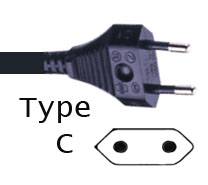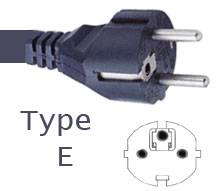Ultimate France Travel Guide
Best time to go
The best time to visit France depends on your interests and preferences. Spring (March to May) and autumn (September to November) offer mild temperatures, blooming flowers, and fewer crowds, making it ideal for sightseeing and outdoor activities. Summer (June to August) is popular for beach holidays, festivals, and outdoor pursuits, but it can be crowded and more expensive. Winter (December to February) is quieter, with festive markets and opportunities for skiing in the French Alps, although weather can be cold and damp.
Average Temperature By Month
January: 3°C (37°F)
February: 4°C (39°F)
March: 7°C (45°F)
April: 11°C (52°F)
May: 15°C (59°F)
June: 18°C (64°F)
July: 20°C (68°F)
August: 20°C (68°F)
September: 17°C (63°F)
October: 13°C (55°F)
November: 8°C (46°F)
December: 5°C (41°F)
What To Expect
Time Zone:
Central European Time (CET), UTC+1.
Currency:
The official currency of France is the Euro (EUR). Credit cards are widely accepted in major cities and tourist areas, but it's advisable to carry cash for smaller establishments and markets.
Language:
French is the official language of France.
Airport:
Paris Charles de Gaulle Airport (CDG) is the main international airport in France, serving as the primary entry point for international travelers. Paris Orly Airport (ORY) is another major airport in the capital. Regional airports like Nice Côte d'Azur Airport (NCE) and Lyon-Saint Exupéry Airport (LYS) also have international connections.
How To Get Around
Public Transport: France has an extensive public transportation network, including trains, buses, and metros. The French National Railway Company (SNCF) operates high-speed trains (TGV) and regional trains, connecting cities and regions across the country. Paris has an extensive metro and bus network, while cities like Lyon, Marseille, and Lille also have efficient public transport systems.
Rental Cars: Renting a car is a popular option for exploring rural areas, vineyards, and scenic routes, offering flexibility and freedom. Roads are well-maintained, and signage is clear, making self-driving relatively easy. However, driving in major cities like Paris can be challenging due to congestion and parking limitations.
Taxis/Uber: Taxis are readily available in major cities and tourist areas, but they can be expensive, especially in Paris. Uber is also available in many cities, providing a convenient alternative for transportation.
Average Temperature By Month:
January: 3°C (37°F)
February: 4°C (39°F)
March: 7°C (45°F)
April: 11°C (52°F)
May: 15°C (59°F)
June: 18°C (64°F)
July: 20°C (68°F)
August: 20°C (68°F)
September: 17°C (63°F)
October: 13°C (55°F)
November: 8°C (46°F)
December: 5°C (41°F)
Plugs:
France uses Type C and Type E electrical plugs, with a standard voltage of 230V and a frequency of 50Hz.
VPN:
Using a VPN is advisable for secure internet browsing, especially when accessing public Wi-Fi networks.
Safety:
France is generally safe for travelers, but it's essential to exercise standard precautions, such as safeguarding belongings and staying aware of your surroundings, especially in crowded areas and tourist spots.
Credit Cards and Banks
Credit Cards: Credit card acceptance in France is widespread, especially in urban areas, tourist destinations, and larger establishments. Major credit cards like Visa, MasterCard, American Express, and sometimes Discover are commonly accepted. However, smaller businesses, particularly in rural areas, may prefer cash transactions or have a minimum purchase requirement for card payments.
Debit Cards: Debit cards, known as “carte bancaire” in French, are widely used in France for both in-store purchases and ATM withdrawals. Most French banks issue debit cards with embedded microchips for enhanced security. It’s advisable to inform your bank of your travel plans to ensure smooth card usage abroad and to inquire about any potential foreign transaction fees.
ATMs: ATMs, known as “Distributeurs Automatiques de Billets” (DAB) in French, are readily available throughout France. They can be found in urban areas, towns, and even in remote villages. French banks often charge their own customers minimal fees for ATM withdrawals, but foreign banks may impose additional fees for international transactions. Using ATMs affiliated with major banks or located within bank branches is recommended to minimize the risk of card skimming.
Currency Exchange: The official currency of France is the Euro (EUR). It’s advisable to exchange your currency to Euros upon arrival. Foreign currencies can be exchanged at banks, exchange offices (bureaux de change), and some post offices. Additionally, major hotels may offer currency exchange services, although rates may not be as favorable. US dollars and British pounds are often accepted for exchange, especially in tourist areas.
Banks: France is home to several major banks, including BNP Paribas, Société Générale, Crédit Agricole, and Crédit Mutuel. These banks offer a wide range of financial services, including savings accounts, current accounts, loans, and investment options. Most banks have extensive branch networks and offer online banking services in multiple languages.
Traveler’s Checks: Traveler’s checks are becoming less common worldwide, including in France. While some banks may still cash traveler’s checks, they are not as widely accepted as they once were. It’s recommended to carry cash or use alternative payment methods such as credit/debit cards or ATMs for transactions.
Tips for Banking in France:
- Notify your bank before traveling to France to inform them of your travel plans.
- Keep your PIN and card information secure, especially when using ATMs in crowded areas.
- Familiarize yourself with the current exchange rate to ensure fair transactions when exchanging currency.
- Carry a combination of cash and cards for flexibility in different situations, but avoid carrying large amounts of cash for security reasons.
By understanding the banking system in France, visitors can enjoy a convenient and hassle-free financial experience during their travels in the country.
Locations
TRAVEL FACTS
US State Dept Travel Advisory
The US Department of State currently recommends US citizens exercise increased caution in France due to terrorism and civil unrest.
https://travel.state.gov/content/travel/en/traveladvisories/traveladvisories.html
Passport/Visa Requirements
For the latest passport and visa requirements for this country, please consult the U.S. State Department’s “Learn About Your Destination” search tool, available through the link below.
US Embassy/Consulate
[33] (1) 43-12-22-22; US Embassy in Paris, 2 Avenue Gabriel, 75008 Paris, France; https://fr.usembassy.gov/; Citizeninfo@state.gov
LGBTQIA+ Travelers
Telephone Code
33
Local Emergency Phone
Ambulance: 112, 15; Fire: 112, 18; Police: 112, 17
Vaccinations
The CDC and WHO recommend the following vaccinations for France: hepatitis A, hepatitis B, rabies, tickborne encephalitis, meningitis, polio, measles, mumps and rubella (MMR), Tdap (tetanus, diphtheria and pertussis), chickenpox, shingles, pneumonia, influenza, and COVID-19.
Climate
Generally cool winters and mild summers, but mild winters and hot summers along the Mediterranean; occasionally strong, cold, dry north-to-northwesterly wind know as the mistral
Currency (Code)
Euros (EUR)
Electricity/Voltage/Plug Type(s)
230 V / 50 Hz / plug types(s): C, E


Major Languages
French
Major Religions
Christian (overwhelmingly Roman Catholic), Muslim, Buddhist, Jewish
Time Difference
UTC+1 (6 hours ahead of Washington, DC, during Standard Time); daylight saving time: +1hr, begins last Sunday in March, ends last Sunday in October
Potable Water
Yes
International Driving Permit
Suggested
Road Driving Side
Right
Tourist Destinations
Eiffel Tower; Louvre Museum; Notre-Dame de Paris; Palace of Versailles; Côte d’Azur; Mont Saint-Michel; Loire Valley Châteaux; Provence; Normandy; Brittany; Carcassone; Avignon; Alsace (includes Colmar and Strasbourg); Notre-Dame de Chartres; Caves of Vezere Valley; Grotte Chauvet, Ardeche River and Pont d’Arc
Major Sports
Soccer, tennis, cycling, basketball, handball, rugby
Cultural Practices
French people are proud of their country and language and prefer to communicate with one another in their native tongue.
Tipping Guidelines
Tips are not necessary, but appreciated and you may always round up for good service. In nicer restaurants, a tip of 5% is sufficient. Tip taxi drivers 10% of a total fare. Bellhops, room service, and housekeeping appreciate a tip between 1-3 euros.
Souvenirs
Designer fashion, perfumes, wine, porcelain items, lavender goods, soap, kitchen items
Traditional Cuisine
Crêpes — thin wheat or buckwheat flour batter pancakes filled with either sweet (chocolate, preserves, cream etc.) or savory (ham, sausage, cheese, mushroom, etc.) ingredients
Please visit the following links to find further information about your desired destination.
World Health Organization (WHO) – To learn what vaccines and health precautions to take while visiting your destination.
US State Dept Travel Information – Overall information about foreign travel for US citizens.
To obtain an international driving permit (IDP). Only two organizations in the US issue IDPs:
American Automobile Association (AAA) and American Automobile Touring Alliance (AATA)
How to get help in an emergency?
Contact the nearest US embassy or consulate, or call one of these numbers:
from the US or Canada – 1-888-407-4747 or from Overseas – +1 202-501-4444
Central Intelligence Agency.
The World Factbook.
/the-world-factbook
(May 8, 2024)



